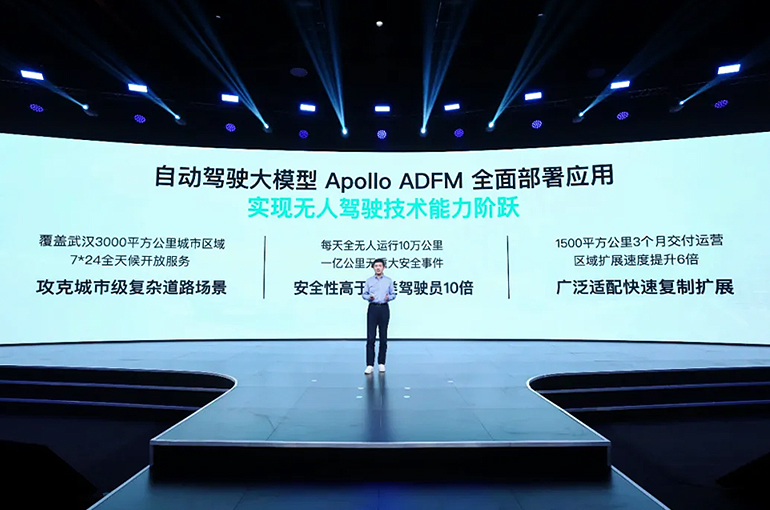 Baidu's Apollo Launches World's First Foundation Model Supporting L4 Autonomous Driving
Baidu's Apollo Launches World's First Foundation Model Supporting L4 Autonomous Driving(Yicai) May 16 -- Apollo, the self-driving arm of Chinese tech giant Baidu, has unveiled the world's first foundation model supporting Level-4 autonomous driving, allowing vehicles to perform all driving tasks in certain scenarios without human intervention.
Apollo Autonomous Driving Foundation Model, which is integrated into Baidu's sixth generation robotaxi fleet, enables the deployment of driverless robotaxi operations in new cities within six months, Wang Yunpeng, vice president of Baidu and president for intelligent driving, said at the Apollo Day 2024 held in Wuhan, Hubei province, yesterday.
Apollo's sixth-gen robotaxis will join Apollo's robotaxi fleet on autonomous ride-hailing platform Apollo Go. The cost of a robotaxi has significantly decreased, as it is now about CNY200,000 (USD27,720). Baidu will deploy 1,000 such robotaxis in Wuhan this year.
Apollo Go has offered over six million driverless rides nationwide so far. With decreasing costs and increasing orders, Apollo Go is expected to break even in the fourth quarter of this year and turn profitable by 2025.
In addition to the robotaxi fleet, the upgraded Apollo Self-Driving intelligent driving software based on Apollo ADFM will also be available on all Jidu Auto vehicle models co-developed by Baidu and Chinese carmaking giant Geely Holding Group.
Baidu is considering possible partnership opportunities on robotaxis with Tesla's upcoming robotaxi service in China, Shanghai Securities News reported, citing Xu Baoqiang, GM at Baidu's autonomous driving department.
Chinese and foreign companies are investing more and more in robotaxis, speeding up the commercialization of autonomous driving, according to Orient Securities. This way, China's automotive sector will hopefully enter the era of L3 smart driving this year, also boosted by local policies and the maturity in software and hardware of high-level intelligent driving systems.
Editor: Futura Costaglione